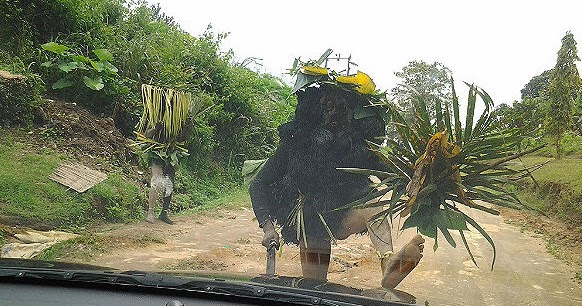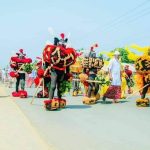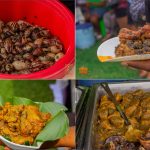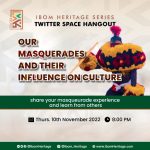The Ekpo society is an interesting part of Akwa Ibom culture. Although colonialism watered down the substance of these aspects of our culture, we have managed to retain some of it. Read on to learn more interesting facts about the Ekpo society.
There is the first part to this particular article, which you can get by clicking here.
Did Ekpo Have Supernatural Powers?
In recent times, the Ekpo masquerade has been more of a cultural display that hits the streets during important occasions. It is also mostly on demand and during end of year ‘ukapadisua’ (ukapisua) celebrations.
As with masquerades in other parts of black Africa, the use of magic does get engaged in Ekpo displays. Although this has been merely for entertainment, those powers still show up when hostile groups meet during simultaneous festivals.
There is nothing unique about the feature of magical powers in Ekpo festivals. It is just like masquerades and cultural plays you find in other parts of Sub-Saharan Africa, especially among Bantu and sub-Bantu tribes. Magical powers are an integral part of the culture. But there is hardly any hard proof of these powers being channeled into harm.
However, as western civilisation continues to sip deeper into the cultures of the land, the uncanny reduces in display. This is why, to witness the supernatural powers of the Ekpo play, one would have to attend Ekpo festivals in the inner recesses of rural Ibibio communities.
Ekpo Has A Home
The Ekpo, considered originally to be a ghost, had a figurative place of abode given to it by the community. This place was treated as sacred because it was thought to haven the spirits of dead ancestors and other dead members of the cult who were buried there.
This ‘abode’ was in a forest and was out of bounds for women and children. If a woman or child or non-initiate wandered into this part of the forest, there were. However, as Western culture arrived, locations like these became increasingly open to members of the community.
The Ekpo Cultural Display
As with other African cultures, including the ones exported to other parts of the world through the trans-Atlantic slave trade, Ekpo has always had its cultural showing featuring its own distinctive masquerade known by the costume and mask. It also has its drum music comprised of the tone, rhythm and accompanying The display also has its drum music is also indicative of the Ekpo display. This is about the only aspects of the society that still feature in the Ekpo phenomenon.
When an Ekpo Society Member Dies
After the death of a member of the Ekpo society, there are sacrifices to the gods. These practices do involve a lot of secrecy. The items used for sacrifice are not made known publicly, although there is talk of human sacrifice in the distant past.
At the funeral ceremony, on the day of the burial event, Ekpo masquerades appeared with all sorts of performance amidst fanfare and feasting.
The society, community and family of the deceased do all these before they lower the corpse into the grave as a mark of respect to the dead member.
How About These Days?
Back in the day, the consequences for violating movement restrictions could be dire. You could be flogged, you could be detained depending on the arm of Ekpo or other society you ran into. The violent manner of enforcing rules using these cultural societies like the Ekpo group was increasingly frowned at as Ibibio culture mixed with English civilization.
These days, within Urban areas of Akwa Ibom State and Calabar, the activities of the Ekpo society have been severely curbed. The violent aspects have almost all together been ended, especially in the city centres. But there are corners of rural areas where these practices remain rife.
Get the book ‘Ibibio Nation: History & Culture’ by Oto-Obong Uwah via this link.
Written by Brownson Nseime, from Jabborro PR






